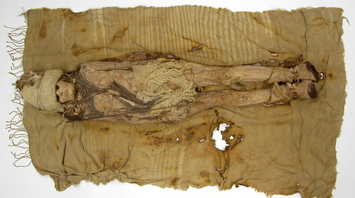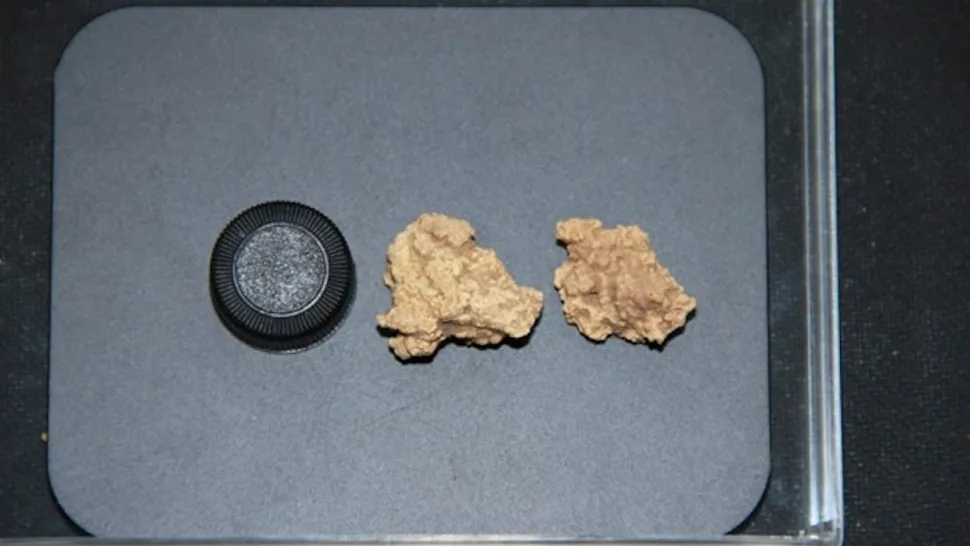Mysterious White Substance on 3,600-Year-Old Mummies Identified as World's Oldest Cheese

Researchers have discovered that a mysterious substance smudged on the heads and necks of ancient mummies unearthed in China's Tarim Basin is the world's oldest cheese, Live Science reported. Initially found around two decades ago in the Xiaohe Cemetery in northwestern China, the substance was recently analyzed and identified as kefir cheese, a probiotic soft cheese made from cow and goat milk.
This ancient cheese dating back 3,600 years was composed of various bacterial and fungal species, including Lactobacillus kefiranofaciens and Pichia kudriavzevii, both essential components of modern-day kefir grains. These grains act as "symbiotic cultures" combining bacteria and yeast to ferment milk into cheese, similar to how a sourdough starter works.
"This cheese sample is the oldest ever found," said Qiaomei Fu, study senior author and paleontologist at the Institute of Vertebrate Paleontology and Paleoanthropology at the Chinese Academy of Sciences in Beijing. She noted that preserving food items like cheese over millennia is extremely challenging, underscoring the rarity and value of this find.
Further analysis revealed that the kefir cultures in the cheese were closely related to modern grains from Tibet. Through sequencing the bacterial genes, researchers could trace the evolution of these probiotic bacteria over the past 3,600 years. Fu explained, "Our research indicates that kefir culture has been present in Northwestern China's Xinjiang region since the Bronze Age. Studying these dairy products has provided a clearer picture of ancient human life and their dietary habits."

Despite these revelations, the exact reason why these individuals were covered with cheese remains unknown. This research offers a unique glimpse into the diet and culture of our ancestors while presenting new opportunities to study the preservation and historical significance of ancient food items.
Earlier, SSP wrote that a second mini Moon will orbit Earth briefly this autumn.



















